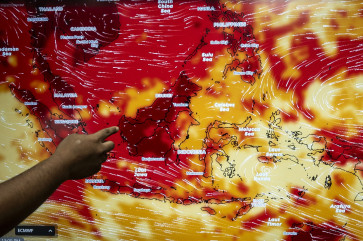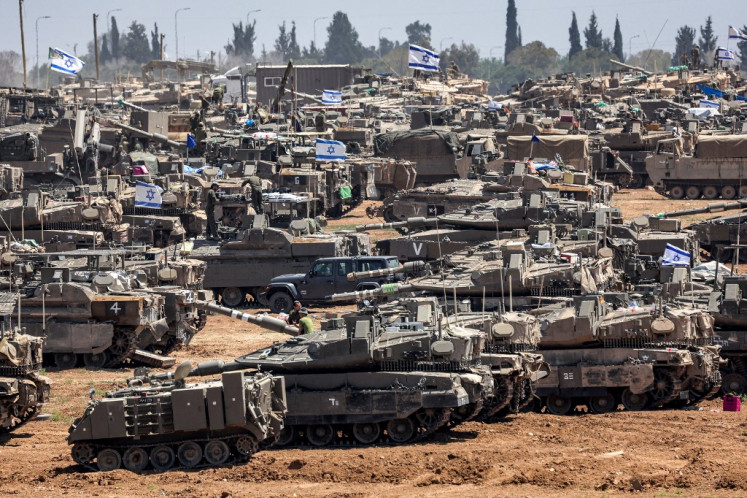Officials, civil society groups wary of UN’s mass-atrocity initiative
Intervention: Centre for Strategic and International Studies (CSIS) researchers Lina Alexandra (right), Alexandra Retno Wulan (left) and Medelina K
Change Size

I
span class="inline inline-left">Intervention: Centre for Strategic and International Studies (CSIS) researchers Lina Alexandra (right), Alexandra Retno Wulan (left) and Medelina K. Hendityo at the launch of their study, “Mainstreaming the Principle of Responsibility to Protect (R2P) in Indonesia”, in Jakarta on Monday. JP/Wendra AjistyatamaIndonesian government officials and local civil society organizations are wary of a new United Nations initiative on mass-atrocity crimes due to clauses allowing foreign military intervention, according to a think tank.
The Centre for Strategic and International Studies released a report titled “Mainstreaming the Principle of Responsibility to Protect (R2P) in Indonesia,” on Monday.
Under the R2P, a UN initiative established in 2005, states have a responsibility to protect their people from genocide, war crimes, ethnic cleansing, crimes against humanity and other actions leaning toward such crimes.
The initiative also stipulates that the international community has a responsibility to assist states if they are unable to protect their populations on their own.
Most controversially, the initiative would give the international community the responsibility to intervene through coercive measures, such as economic sanctions, if states failed to protect their citizens from mass atrocities and if peaceful intervention did not work.
Military intervention was considered the last resort.
Only a few of the respondents interviewed for the study, including government officials from relevant ministries, civil society representatives and academics, were aware of the R2P.
Most of those surveyed were wary of allowing the international community to use coercive measures to stop mass atrocities.
“The research shows that the number of civil society [groups] who do understand or have prior knowledge on R2P is very few. Those that do know about the concept have not followed its development,” CSIS researcher and study coordinator Lina Alexandra said while presenting the results of the study in Jakarta on Monday.
“While pillar one and pillar two of the R2P to some extent do not invoke any controversy, it is pillar three — which includes the use of military force under Chapter VII of the UN Charter to stop mass atrocities where the government fails to fulfill its responsibility — that has become a source of concern,” the CSIS said in its written report on the study.
The report said that the only government respondents from the Foreign Ministry were aware of the R2P, although President Susilo Bambang Yudhoyono supported the initiative when it was introduced in 2005.
Similar results were found during focus group interviews with civil society organizations, representatives and academics.
The CSIS said that the Foreign Ministry officials surveyed said that pillar three needed to be discussed with regards to establishing a sound early-warning system for mass atrocity crimes.
“The lack of clarity then justifies why many governments, including the Indonesian government, decided to postpone the ‘internalization’, or even mainstreaming, of this principle in their respective countries.”
About half of the respondents from civil society groups and academics agreed that foreign intervention was necessary when a government failed to protect its own citizens from mass atrocities.
“However, almost all interviewees underlined that there should be valid reasons as to why such military intervention would be taken up. They questioned which body would be the legitimate actor and authority to decide when a government has failed to prevent any misuse of R2P, especially by powerful countries against smaller ones for their own interests.”
Despite concerns, respondents in general accepted the R2P principle, the CSIS said.









